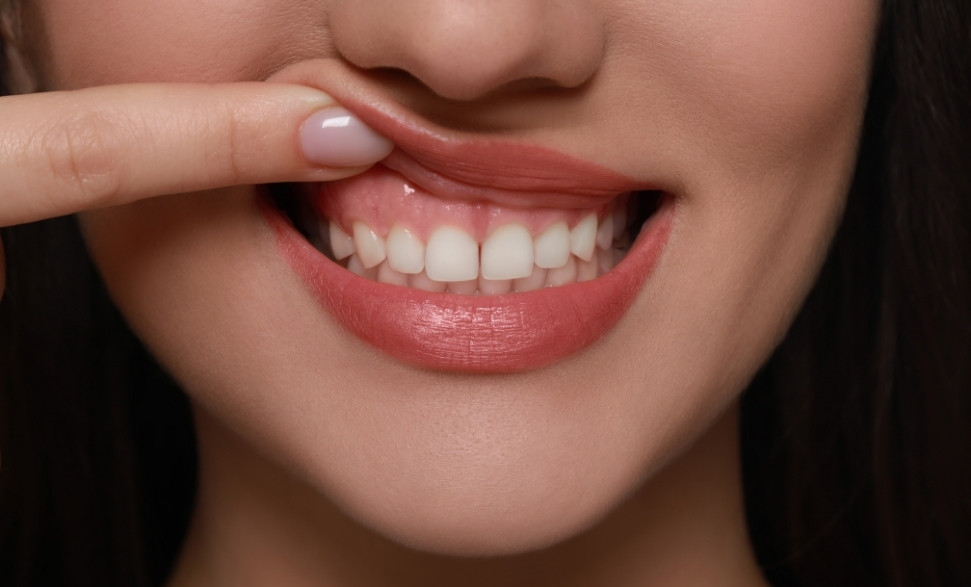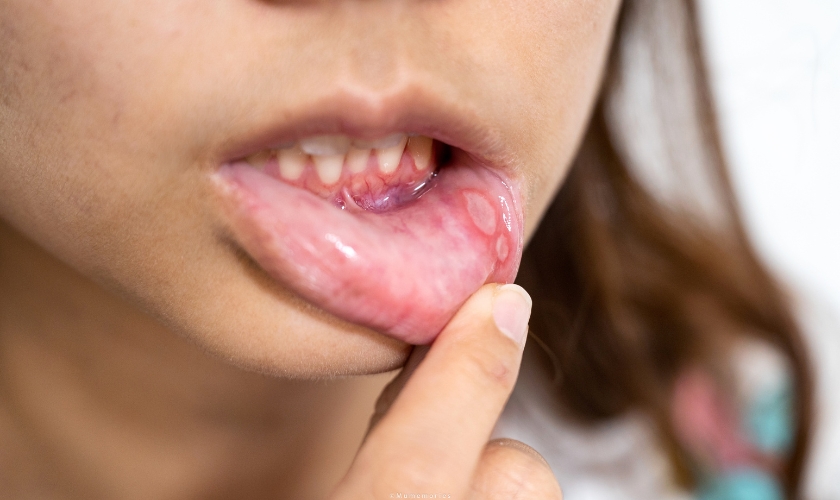
A lifted gum is painful and frightening, bringing about sensitivity, pain, and bleeding. It is caused by gum disease, trauma, or poor oral hygiene and should be treated promptly to prevent complications. If not treated, a swollen gum can lead to infections, gum recession, or tooth loss.
The good news is that gum healing and health can be promoted in a few ways. From professional treatment to home treatments, let’s review what you can do to treat a lifted gum and avoid it in the future.
What Are the Causes of a Lifted Gum?
You need to be mindful of the reasons for lifted gum so that you can get proper treatment to rectify it. The most prevalent reasons are:
- Gum disease – The gum tissue is compromised and pulled away from teeth by infections like gingivitis and periodontitis.
- Trauma or injury – Brushing excessively, aggressive flossing, or even chewing something hard can hurt gums.
- Poor oral hygiene: Failure to brush and floss can lead to the accumulation of plaque, which in turn causes gum irritation and inflammation.
- Nutrient deficiency – Insufficient vitamins, especially Vitamin C and D, will weaken gum tissues.
- Hormonal change – Pregnancy, menopause, and other hormonal changes can make gums sensitive and vulnerable to lifting.
How to Heal a Lifting Gum?
If your gum is pulling away, taking quick action can heal it and prevent further injury. Here’s how you should do it:
- Follow gentle oral hygiene – Brush with a soft-bristled toothbrush in slow, circular motions. Avoid brushing too hard, as this may worsen the condition.
- Saline rinse mouthwash – Combine salt with warm water and swish in the mouth to reduce swelling and bacteria. Perform these two or three times daily.
- Apply cold compress – If your gum is painful or swollen, apply a cold compress against the outside of the cheek to reduce swelling.
- Rinse antiseptic mouthwash – Choose one that has antibacterial agents to prevent infection and promote healing.
- Eat a nutritious diet – Take foods rich in vitamins D and C, such as citrus fruits, leafy greens, and milk, to support gum healing.
- Use over-the-counter painkillers – Chronic pain will be alleviated by over-the-counter painkillers such as ibuprofen, which will cause inflammation to decrease.
- Avoid irritants – Avoid tobacco, alcohol, and extremely hot or sour foods, which irritate gum tissue.
- Consider professional attention – If your gum doesn’t improve or deteriorates, deep cleaning, antibiotics, or even gum grafting may be necessary. If pain is unbearable or signs of infection are visible, an emergency dentist Metairie consultation could be the answer.
When to Seek Professional Help?
Even slightly raised gums can be managed by self-care over-the-counter, but some conditions need to be addressed immediately by the dentist. If you experience:
- Pain or bleeding recurring despite proper treatment.
- Severe recession with roots visible.
- Pus, bad taste, or infection visible.
- No improvement after a week of home treatment.
Prevention Tips for Gum Lifting
Prevention is always better than cure. For healthy gums and to prevent problems in the future, do these:
- Brush and floss daily – Soft, gentle strokes and flossing between teeth cannot be neglected.
- Use a soft-bristled toothbrush – This will avoid unnecessary irritation and damage.
- Drink lots of water – Frequent intake of water eliminates bacteria and gums stay moist.
- Quit smoking – Smoking products cause gum disease, and gum tissue gets weakened.
- Go to your dentist often – Regular cleanings and checkups can detect gum problems early, as they are not yet severe.
Treating a lifted gum involves a combination of good oral habits, self-care, and, in some cases, professional therapy. Healing the root of the inflammation and practicing healthy habits will keep your gums pain-free and healthy. Should you experience persistent pain or infection signs, don’t wait—visit your dentist for professional treatment to tend to your mouth.






